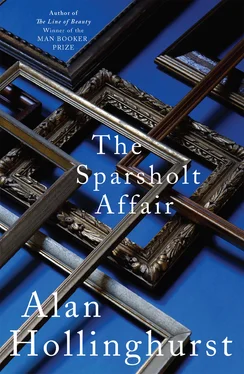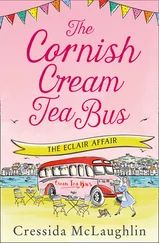Alan Hollinghurst - The Sparsholt Affair
Здесь есть возможность читать онлайн «Alan Hollinghurst - The Sparsholt Affair» весь текст электронной книги совершенно бесплатно (целиком полную версию без сокращений). В некоторых случаях можно слушать аудио, скачать через торрент в формате fb2 и присутствует краткое содержание. Год выпуска: 0101, Издательство: Pan Macmillan, Жанр: Старинная литература, на английском языке. Описание произведения, (предисловие) а так же отзывы посетителей доступны на портале библиотеки ЛибКат.
- Название:The Sparsholt Affair
- Автор:
- Издательство:Pan Macmillan
- Жанр:
- Год:0101
- ISBN:нет данных
- Рейтинг книги:5 / 5. Голосов: 1
-
Избранное:Добавить в избранное
- Отзывы:
-
Ваша оценка:
- 100
- 1
- 2
- 3
- 4
- 5
The Sparsholt Affair: краткое содержание, описание и аннотация
Предлагаем к чтению аннотацию, описание, краткое содержание или предисловие (зависит от того, что написал сам автор книги «The Sparsholt Affair»). Если вы не нашли необходимую информацию о книге — напишите в комментариях, мы постараемся отыскать её.
The Sparsholt Affair — читать онлайн бесплатно полную книгу (весь текст) целиком
Ниже представлен текст книги, разбитый по страницам. Система сохранения места последней прочитанной страницы, позволяет с удобством читать онлайн бесплатно книгу «The Sparsholt Affair», без необходимости каждый раз заново искать на чём Вы остановились. Поставьте закладку, и сможете в любой момент перейти на страницу, на которой закончили чтение.
Интервал:
Закладка:
‘I’m not sure any more,’ I said. ‘Do you?’
‘Well, I love the trilogy,’ she said. ‘I’ve read it three times.’
‘I know what you mean,’ I said, anxious again not to sound superior. ‘I’m re-reading them all at the moment, as it happens. You know Dax is coming to speak to this club of ours – if you’re free next Thursday evening, come along. You’d be very welcome.’ This appeared a mere kindness to a new arrival in Oxford, but I felt too I was making a bit of mischief.
‘Oh, drum,’ she said, and grinned eagerly but narrowly at her fiancé. I took this at first as a genteel curse, like ‘oh drat’, but she shook her head. ‘Drum won’t want to come. He never reads a thing.’
‘I do!’ said Sparsholt happily. I had a salutary sense of their differences exposed and forgiven long before they’d taken their wedding vows. ‘Drum’ must be his nickname – or of course his second name, short for Drummond. It suited him much better than his first.
‘Well, I’ll see,’ said Connie.
‘No, you go with Freddie,’ said Sparsholt, ‘I’ve got training on Thursday night.’
It was touching that he trusted me, even if again he took a lot for granted. I saw that in his eyes I presented no threat. I said smoothly: ‘I’ll drop you a line. I think you’ll be at Keble?’
‘Yes . . . yes, I shall,’ she said, and I saw she was surprised not only that I knew, but by the idea itself – it was still a novelty to her.
‘You’d better tell me your surname.’
‘It’s Forshaw,’ she said, ‘yes,’ and nodded as if hearing all that was satisfactory in the word.
‘Are you coming in?’ I said.
Sparsholt said, ‘We’re on our way to see a pal in St Peter’s,’ and Connie smiled and snuggled under his arm – the pal, I suspected, would be Gordon Pinnock, that true intimate of Sparsholt’s, whom I’d never met, but whom Evert envied and almost detested, after their encounter in the loved one’s rooms.
We turned and separated (Sparsholt wasn’t one for saying goodbyes), they slipped at once into their own murmured talk, and it was ten seconds later that Connie called out – ‘Oh . . . Freddie . . . Won’t you join us for a drink tonight – in the pub?’ She spoke as if there were one pub in Oxford, rather than two hundred.
‘Well, if I can,’ I said, as they came back to me.
‘We’ll be at the Gardener’s Arms,’ she said. ‘At half-past eight.’ I noted the way she threw out the name of this place she could never have seen. I had no real desire to go, and believed it would look odd, a third-year man out drinking with a freshman and his girl; but the strange mood of the Sparsholt affair made me feel I might regret missing it.
‘Bring your girl along,’ said Sparsholt.
‘Oh, well . . . yes. I’ll find out if she’s free.’ I didn’t suppose she had a very full diary, but I couldn’t see her in a pub – unless she took it, in her resolute way, as a challenge.
‘What’s her name, by the way?’
‘She’s called Jill.’
Was there something charitable in his hint of a smile? ‘Ah, that’s a nice name.’
‘Well . . .’ I said. It had always made me uneasy, it was too close to chill , and to jilt , and not at all far from gill , a quarter-pint of cold water.
As I left them and turned back to the gateway I glanced up at Evert’s window and saw him standing there, staring down. I nodded and raised a hand, but there was no response, and I went back to my rooms in a muddle of unexpected guilt and excitement.
I hadn’t been to the Gardener’s Arms since my first year. It was one of those dim little locals in St Ebbe’s, with a front of glazed ox-blood brick, and a Public and a snug. I could picture the mild glow of its windows, the cheap Windsor chairs, the shove-ha’penny board by the door at the back. In the blackout it wasn’t so easy to find. I made my way cautiously through the narrow streets, self-conscious in spite of the darkness. It was a pub where you might run into your scout, or people from the market. In fact I made a wrong turning, and took two or three minutes to find the way back. There were others about, of course, indecipherable signallers with their taped-over flashlights; but the dark doorways and alleys re-awoke my sense of being watched or even followed by noiseless figures. I knew the pub, when I came to it, by the noise it made. In its entranceway two curtains were fixed, with a narrow lung of changeable darkness between them, from which I groped half-panicking into the commonplace light of the saloon. I saw Sparsholt and Connie in the far corner and decided I would leave as soon as I’d done my good deed.
I nodded, left my hat on their table and fetched a glass of Ind Coope. I’ve never been a beer-drinker, and the wartime beer was especially foul, but I felt it was the thing to order. We sat for a minute admiring the sooty atmosphere of the pub – the soft thwack of the dartboard and murmur of scoring could be heard from the Public just visible beyond the bar. ‘Have you been here before?’ Connie asked – she was slumming it cheerfully with her Drum, but a certain fastidiousness peeped out. I said how my half-brother Gerald had brought me here when he visited in my first term; and how he himself had been brought here as a freshman by Wystan Auden. ‘Auden liked St Ebbe’s,’ I said. ‘He liked to show people the gasworks.’ ‘Oh, yes . . .’ said Connie, and laughed unsurely; if her taste was for Dax’s romances, she was probably less attuned to the angular new poetry of railways and revolt. I quite wanted to add that Gerald had gone to bed with Auden later that day, but I felt that just now it was a subject to steer clear of. I said merely that I remembered the cat, which seemed not to have moved in the past two years. There it lay, fat, hot and possessive in front of the coke fire, deaf to endearments and hostile to all strokes and tickles. The old man who was the only other occupant of the snug shook his head and said, ‘Ah, Tiger . . .’ in the tone one might use of a long-lasting problem, like arthritis, or the War itself. Connie smiled sternly at it. ‘And what about Jill?’ she said. She seemed to picture a feminine ally in this dingy place.
I sensed Sparsholt paying careful attention to my answer. ‘She’s awfully sorry but she can’t come. She has an essay to write.’ I felt sad that this respectable excuse would not last any of us much longer. And before she could put more questions, ‘In fact I’ve asked my poet-friend Evert Dax to join us – I hope he can make it. He’s A. V. Dax’s son, and I thought since you like his books so much you might care to meet one of his other productions.’
‘Gosh,’ said Connie, pleased but a little flustered; and Sparsholt, who never admitted to surprise, said,
‘Yes, he’s a good man,’ and nodded as he lifted his pint.
‘You never said you knew him,’ said Connie.
‘I know all kinds,’ said Sparsholt, and winked at her over the top of the glass.
‘Oh, Drum,’ she said; but she was preoccupied for a minute by the prospect of the encounter.
There was no sign of him after a quarter of an hour, though, when a new round had to be bought. I went to the bar and Sparsholt joined me, leaving Connie to her attempted seduction of Tiger. ‘Won’t you call me David?’ he said, and I said of course I would. The barmaid, not specially friendly to students, took her time to turn round from the counter of the Public, framed through an archway like a picture of a brighter and more natural life. She carried on talking over her shoulder as she drew our drinks (stout for Connie, another bitter for David, and a gingerly half for me). David said he was paying (he had a sort of hard purse, the coins shaken out on to its leather tongue), and as he waited for the change his eyes studied the barmaid’s round backside until he said, ‘Isn’t that your friend?’ I was puzzled for a second, then looked through into the further space. It was clever of him to have known that the figure in a cap on the far side of the room, turned away from us as he bent over a newspaper, was Evert. ‘It’s Evert, isn’t it?’ he checked; then said ‘Evert!’ in such a sudden and carrying way that the dart-players turned, and Evert himself twisted round, alarmed as he was by any public attention, and overwhelmed to be called in this way by Sparsholt himself. He stood up, red-faced, grinning, channelling his confusion into the mime of taking his glass and his paper, going out into the street and fighting his way back, through a convulsion of curtains, into the snug.
Читать дальшеИнтервал:
Закладка:
Похожие книги на «The Sparsholt Affair»
Представляем Вашему вниманию похожие книги на «The Sparsholt Affair» списком для выбора. Мы отобрали схожую по названию и смыслу литературу в надежде предоставить читателям больше вариантов отыскать новые, интересные, ещё непрочитанные произведения.
Обсуждение, отзывы о книге «The Sparsholt Affair» и просто собственные мнения читателей. Оставьте ваши комментарии, напишите, что Вы думаете о произведении, его смысле или главных героях. Укажите что конкретно понравилось, а что нет, и почему Вы так считаете.












